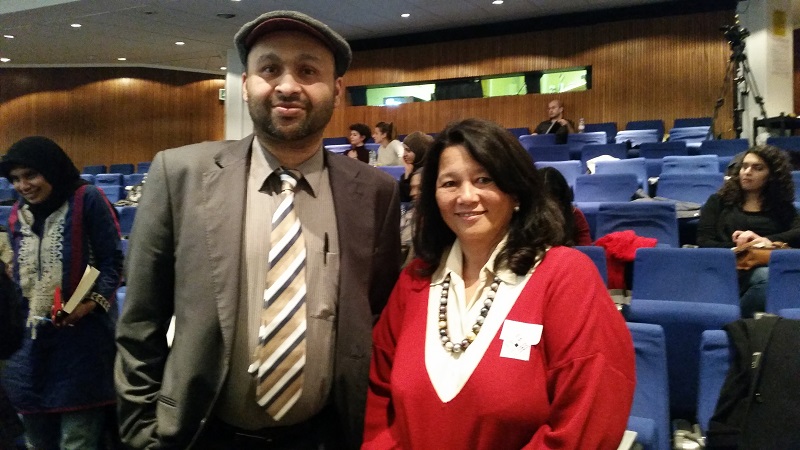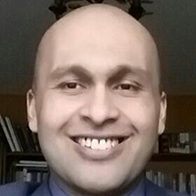I was very privileged having been extended an invitation to attend a conference last Saturday entitled “Men in Charge?” at the School of Oriental and African Studies, University of London. The eponymous question is obviously rhetorical and the answer was a resounding “NO”. That is what Musawah, the conference’s organiser is all about, redressing the imbalance of power.
Islamic feminism which seeks to redress this imbalance is often condemned by Conservative Traditional Islam as being influenced by the West. I strongly disagree with this. The only reason Islam can seems so patriarchal and misogynistic is by ignoring the Quran and interpreting the Sunnah in ways which favour the males.
Here is where Musawah comes in. The etymology of the very word musawah is related to equality and thus justice. Musawah engages with the prevailing discourse of conservative, traditional Islam in order to produce a fairer and more balanced fiqh (literally “understanding” but connotatively human engagement with shariah to produce legal norms). Fiqh is invariably human in nature and thus will reflect the socio-cultural milieu from which it operates. There is no real “divine law”, only the ideal of one as conveyed by the term shariah whose deep meaning is “a watering source where the water is flowing”.
Musawah’s first conference last Saturday was amazingly organised. The layout of the day’s proceedings engaged with the myth of male authority from a variety of angles. These angles helped us understand that although Islamic law is derived from Islamic texts, they also must operate in what are lived realities. This is one thing to which conservative, traditional Islam turns a blind eye, the reality of the results of its legal norms.
 Zainah Anwar of Sisters in Islam (right) and Farouk Peru at the conference on Islamic reform organised by the University of London. – Pic courtesy of Farouk Peru, March 11, 2015.The morning began with an introduction by three speakers. I was very familiar with Zainah Anwar and have been for over two decades. She is a hero for Malaysian Muslim reformists. A founding member of the famous (and for some “infamous”) Sisters in Islam, she is also a director of Musawah. You can see from my cheesy grin how delighted I was to finally meet her in the flesh.
Zainah Anwar of Sisters in Islam (right) and Farouk Peru at the conference on Islamic reform organised by the University of London. – Pic courtesy of Farouk Peru, March 11, 2015.The morning began with an introduction by three speakers. I was very familiar with Zainah Anwar and have been for over two decades. She is a hero for Malaysian Muslim reformists. A founding member of the famous (and for some “infamous”) Sisters in Islam, she is also a director of Musawah. You can see from my cheesy grin how delighted I was to finally meet her in the flesh.
The focus of the seminar can be summarised as what was called the “gender contract” which is essentially how husbands and wives should behave towards one another in Islam. This is based on the traditionalists’ interpretation of the Quran, chapter four and verse 34 (yes, the infamous so-called “wife-beating” verse!). Based on this verse, husbands are said to be in a state of qiwamah (understood to mean authority) over wives. Besides this, there are also edicts from the sunnah that male family members wilayah (guardianship) over female members. These two questionable principles have expanded into an entire system of oppression!
The gender contract was approached from a variety of angles in this conference. There was a conceptual angle by Dr Ziba Mir Hosseini which outlined the qiwamah and wilayah concepts effectively. This was balanced off well by Dr Mulki Al-Sharmani who presented to us on the lived realities of these concepts which was presented in the self-explanatorily titled “Global life stories” project.
The highlight of the morning session for me was when Prof Wadud herself did her usual thing – linking theology with ethics. Being a novice theologian myself, I appreciated how she used the principle of tawheed to be the basis of Islamic ethics. Tawheed for her, not just being the unity of Allah, also implies the unification of the human race. This then should be the guiding principle of the Islamic ethos. I wholeheartedly agree as the Quran itself describes “an-naas” (humankind) as ideally “ummatan wahida” (a unified ummah) in chapter two, verse 213. How can the unification happen when women are subject to the traditionally understood qiwamah and wilayah?
The afternoon proceeded with a panel approaching male authority from a variety of legal angles. Professor Lynn Welchman approached qiwamah as a legal postulate and how this manifested. Marwa Sharafeldin on the interactions of human rights and Islamic law (potentially an explosive meet there). Lena Larsen on fatwas on spousal roles and rights which are how imams and muftis interact with specific situations. Finally we had Mussurut Zia who told us a tragic story on how family pride was used to perpetuate abuse.
The final panel kept me wide awake even after the proceedings of a long day. We had Omaima Abou Bakr explain how qiwamah was an exegetical construct which essentially is how this concept was perpetuated and developed by jurists to ratify dominance over women. Ayesha Choudhury then presented on the issues in hadith with respect to wilayah. I particularly enjoyed the final panellist’s, Asma Lamrabet, presentation which showed the ethical basis of equality in the Quran which is typically ignored to press the patriarchal agenda.
With this conference, Musawah has now a powerful course to chart. I feel that it should continue investistigations into the link between tawheed and fundamental ethical ideas and the very semantics of gender. The Quran has a wide technical vocabulary related to gender and this is often ignored (I have explored possibilities of such meaning here) . Apart from that, perhaps they should explore the given Traditionalist maxims such as the division between “ibadat” (ritualistic worship) and “mu’amalat” (social relationships). The Quran does not have such divisions. Ibadat is total and this has wide implications.
Lastly, they did emphasise the role of context in interpretation and if I understood this correctly to mean socio-cultural context, I would be cautious about using sources which are so clearly biased in favour of patriarchy. Changing strategy while playing the same game is not enough. We have to change the game itself since the rules were created by those we challenge. After all, the concept of wilayah as traditionally understood is nowhere to be found in the Quran. We need to excise it once and for all.
Having said the above, I do feel Musawah poses a tremendous challenge to the hegemony to the patriarchal, misogynistic conservative, traditional Islam. Musawah will take us a long way along the path of Islamic reform and that is what matters.
Please buy the book “Men In Charge?” and support our cause. You may do so here. – March 11, 2015.
* This is the personal opinion of the writer or publication and does not necessarily represent the views of The Malaysian Insider.


Comments
Please refrain from nicknames or comments of a racist, sexist, personal, vulgar or derogatory nature, or you may risk being blocked from commenting in our website. We encourage commenters to use their real names as their username. As comments are moderated, they may not appear immediately or even on the same day you posted them. We also reserve the right to delete off-topic comments